Nate Bass said it can be daunting to think about how to reach the entire world for Christ.
But when he looks at his own sphere of influence, the task gets more bite-sized — it becomes about living life with one or two or three people, gauging where they are spiritually and encouraging them to pursue a relationship with Christ.
“Then from there, it’s walking alongside them to a place where they are disciple-makers too,” he said. “It goes from this big picture thing to this small and intimate thing.”
Building His church
Bass, a sophomore at Samford University, said before he took a couple of classes in college that dealt with disciple-making, he saw discipleship as a more programmatic thing.
“Jesus tells us to go and make disciples, and He is going to build His church through that process,” he said. “I get so excited thinking about it — if every Christian who was attending a church on a Sunday was also going out during their week and making disciples and having one person they were intentionally investing in, that would change the world.”
Now Bass spends his life investing in friendships with people in various places in their spiritual journey. He meets with believers to help them grow in their faith, and he has intentional conversations with friends who are not believers or who grew up in church but only have a cultural kind of faith rather than a personal relationship with Jesus.

Discipleship perspective
Daniel Edmonds, director of the Office of Sunday School & Discipleship at the Alabama Baptist State Board of Missions, said what Bass describes is the perspective his team is encouraging across the state today when it comes to discipleship — that each follower of Jesus is intended to be a disciple who makes disciples.
Over the decades, what discipleship has looked like in the Baptist church landscape has changed, he said.
From the beginnings of the Southern Baptist Convention, Sunday School — a small-group, age-graded Bible study that met before the Sunday service — was seen as a means for churches to teach gospel basics to anyone who attended.
At the SBC annual meeting in Birmingham in 1891, the convention voted to establish the Baptist Sunday School Board in Nashville, which would handle Sunday School curriculum for their churches.
At the same time, the Baptist Young People’s Union was gaining steam across the country, with both Northern Baptists and Southern Baptists having BYPU groups. The organization’s intent was to train young people to be strong church members who served in leadership roles.
Baptist Training Union
By 1934, the SBC’s BYPU had developed into a church training program — in essence, a seminar-type class usually held on Sundays or Wednesdays — and changed its name to Baptist Training Union.
“The idea was that you train the next generation of leaders,” Edmonds said.
In many ways, it produced positive results over the years, he said — Training Union helped churches find potential leaders and help them go deep in doctrine.
‘Too narrow’
But in other ways, the program’s focus on training leaders “muddied the waters” of what discipleship means, Edmonds said. The term “discipleship” for many church members lost the broad mandate of the Great Commission — for every disciple to make disciples — and instead focused on multiplying groups and group leaders.
“We got too narrow,” Edmonds said. “But I think we’re recovering.”
In recent years, his office has been encouraging Baptist church members all over the state to go back to the basics — to be disciples who make disciples.
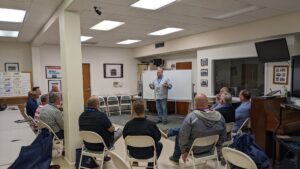
That can look a variety of ways, Edmonds said. It still involves groups, just groups focusing on making disciples who make disciples both in a small group setting and in their daily life outside the walls of the church.
“I always saw Sunday School or group strategy as an integral part of a disciple’s path,” he said.
Discipleship can also involve that seminar-style of learning that was found in Training Union, so long as it encourages and empowers participants to personally make disciples.
“We’re all family,” Edmonds said of the churches using different methods, “but I see especially on the younger side of the spectrum more interest in a disciple-making movement.”
In recent years, his office started Disciple-Making Ministries of Alabama, which is aimed at supporting pastors and leaders to be disciples who make disciples and create that kind of culture in their church.
Robert Mullins, executive director of missions for Madison Baptist Association, served on the lead team for Disciple-Making Ministries when it was founded and has been a part of that kind of discipleship over the years.
He said he’s been humbled to see how God has worked.
‘Process-oriented’
As minister of youth at Calvary Baptist Church in Tuscaloosa in the early 2000s, he had begun using the “process-oriented” kind of discipleship he had learned about from Mike Breen’s “Building a Discipling
Culture.”
“The language ‘disciple-making’ was not officially there, but that’s what we were doing,” Mullins said, noting that they were practicing the model Jesus has given us by hosting college students in his home, pouring into them and equipping them to disciple youth in the church.
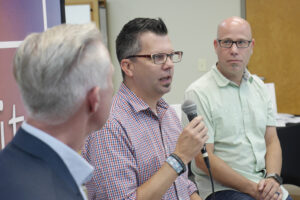
Later after moving to serve as pastor of Crossroads Community Church in Elmore, he also began meeting with a “huddle” of seven or eight pastors to learn more about how to be disciples who make disciples.
“We were meeting with those guys around the state,” he said, noting that one of those was Mark Gainey, who now serves on Edmonds’ team as a disciple-making strategist in addition to serving as pastor of Fultondale First Baptist Church.
Role model
Since joining the SBOM staff, Gainey wrote a book called “4 Invitations: The Four Disciple-Making Invitations of Jesus that Help You Be a Disciple Who Makes Disciples.”
Mullins said the idea that they all share now is this — leverage every part of your life to make disciples.
“Examine the life of Jesus — He was a role model for us, and we need to do it the same way,” he said. “Everything He did was leveraging — leveraging fish and bread, water at the well, His knowledge of the Jewish texts so He could have conversations with the rabbis. He leveraged everything that was leverageable, and we need to do the same thing.”
Jesus made disciples in real time in real life, Mullins said. Nothing is wrong with a curriculum or a tool, but it should add to everyday discipleship, not replace it.
Edmonds said he sees that happening more and more all the time in Baptist churches across the state. “That’s what gives me hope for disciple-making in the future — we’ve really grasped the fullness of the biblical model that Jesus came and breathed life into again,” Edmonds said. “It’s about being very intentional wherever you live, work and play. The Great Commission is who we are — living out our identity as a disciple and inviting others in.”

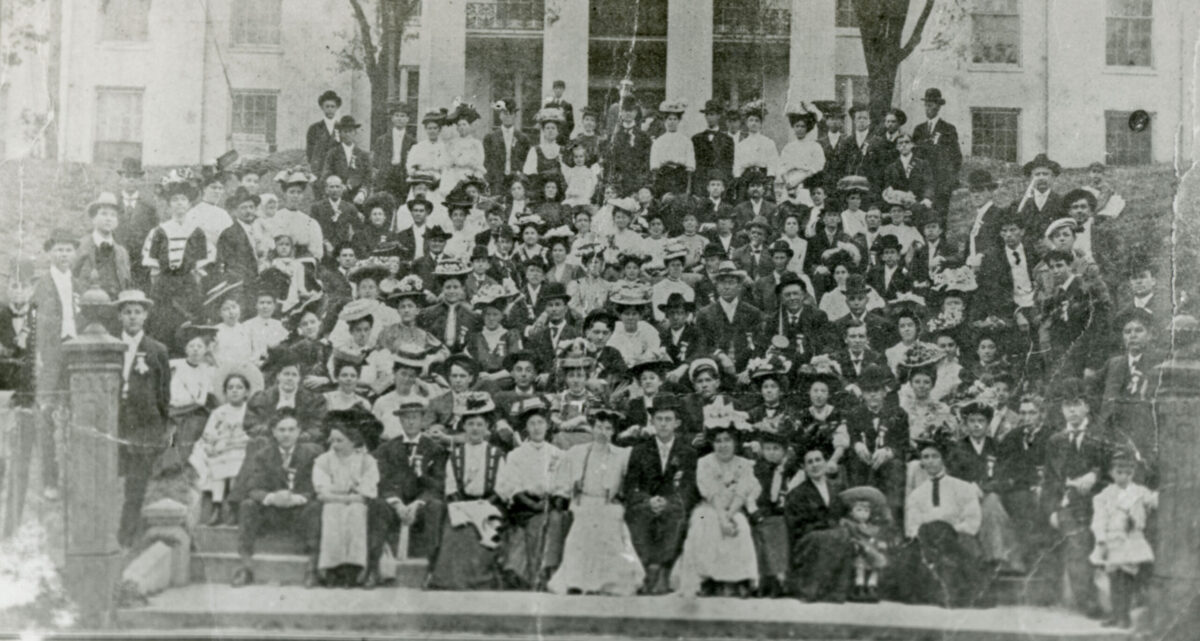

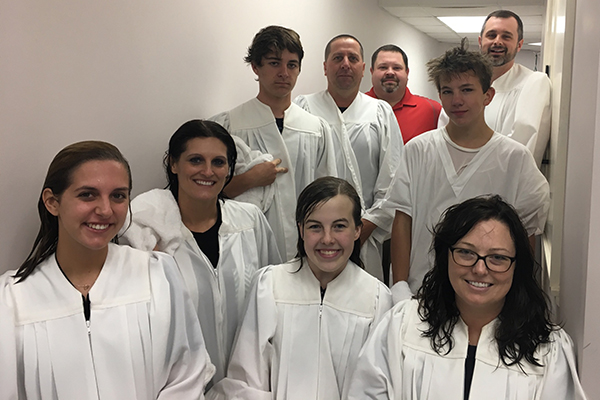
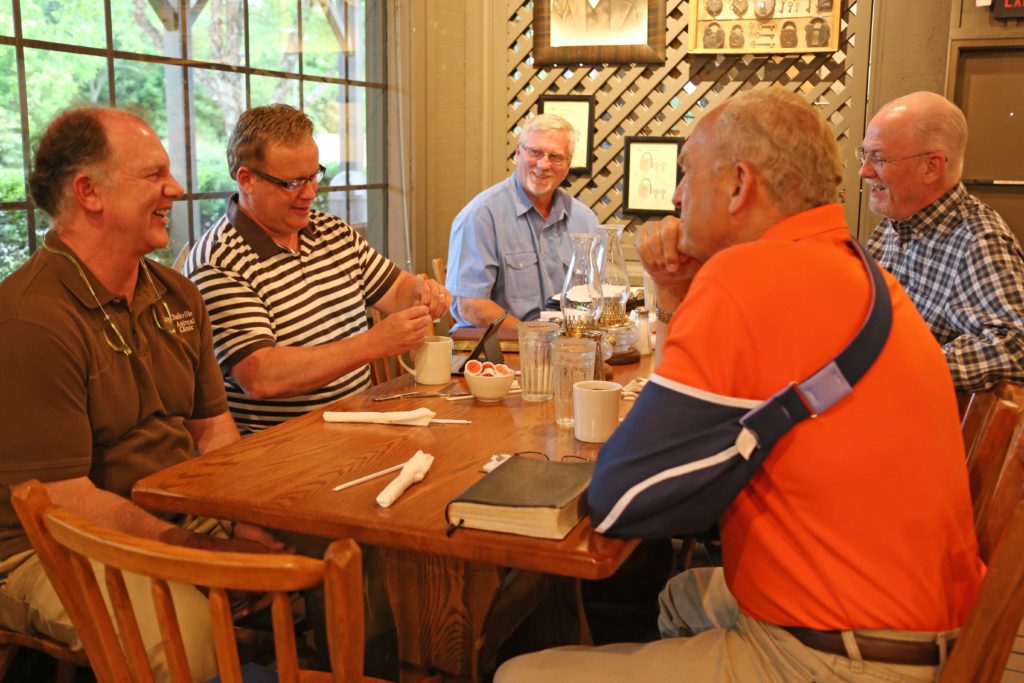

Share with others: